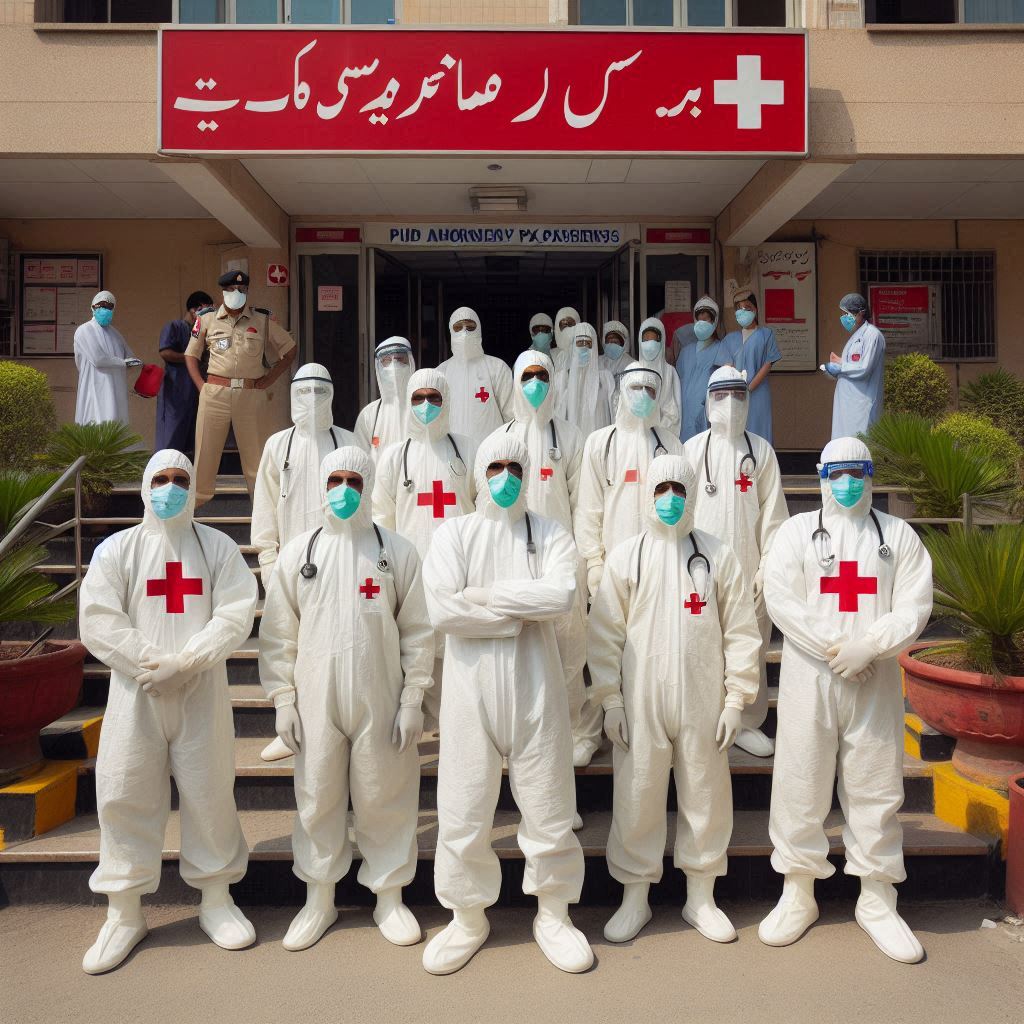Pakistan’s health economy crisis and monkeypox
4 min read
The World Health Organization (WHO) has designated the global outbreak of monkeypox (MPX) a Public Health Emergency of International Concern in an attempt to increase the level of effort put into containing the disease. The MPX outbreaks and their containment can cause mental health problems such as sadness, anger, frustration, depression and anxiety in the public. As a result, they will have a wide-ranging impact on a wide range of areas, from adverse impacts on economy, social behaviour, healthcare, to animal trades. MPX cases are continuously rising everyday and as of August 31, 2022, nearly 50000 confirmed cases have been reported from 99 countries with 15 deaths. The virus is expanding its horizon to affect more and more people globally. A large part of what countries and international organizations such as the WHO are doing now is focusing on testing, isolating, vaccinating and treating monkeypox virus (MPXV) infected people, increasing disease awareness programmes and promoting development of drugs, therapeutic strategies, and vaccines in an effort to control and mitigate the epidemic’s impact. The recent MPX outbreak, despite all our efforts to defeat it, has yet to clear a path in the near future. Many already overburdened healthcare systems struggle to cope with an alarming rise of MPX outbreak in the middle of a continuing COVID-19 pandemic are a cause for high public health concern. The unpredictability and anxiety caused by the MPX outbreak are expected to lead to a rise in prevalence of mental health disorders. Concerns regarding stigmatization and social isolation of patients, survivors, and their families were prevalent during the 2017/18 MPX outbreak in Nigeria, which was characterized by tremendous fear and panic among the public. It is critical for public health initiatives to accurately describe the spread of contagious disease, as accurate epidemiology reduces the risk of public stigma by raising awareness. and encouraging implementation of preventive interventions in targeted populations. Health anxiety is one of a variety of mental factors that impacts on how an individual reacts to a viral disease outbreak, including monkeypox. Patients with MPX often have negative emotions. Even a case of suicide has been reported during the 2017 MPX outbreak in Nigeria. Recent studies on analyzing the impact of infectious diseases-related public health emergencies on mental health, suicide and suicidal behaviour, self-harm and psychologically negative thoughts revealed an increasing trend in mental health associated disorders, and a few cases of suicides have been reported during the epidemics such as SARS in Hong Kong and the ongoing COVID-19 pandemic era. Pakistan is currently facing a severe health economy crisis, exacerbated by the recent monkeypox outbreak. The economic downturn has significantly impacted the healthcare sector, leading to reduced resources and strained services. Rising inflation and a dwindling budget have left healthcare facilities struggling to provide adequate medical services. Many families find it increasingly difficult to afford quality medical care due to the rising cost of living. The economic crisis has particularly affected vulnerable communities, including low-income individuals and marginalized groups. Hospitals and clinics are grappling with financial constraints, making it hard to maintain infrastructure and acquire essential equipment. Pakistan’s health economy crisis and monkeypox the shortage of funds has also hindered the training and development of healthcare staff. This has resulted in a reduced quality of care and increased workloads for healthcare workers. The morale of healthcare professionals has been negatively impacted, leading to an exodus of experienced personnel. The government’s efforts to address the crisis have been met with challenges and limitations. Although some measures have been taken, economic constraints have limited their impact. It is crucial for the government to prioritize healthcare and work towards long-term solutions. International organizations and donor countries have a significant role to play in supporting Pakistan’s health sector. The monkeypox outbreak has presented Pakistan with a dual challenge: a public health crisis and a significant economic downturn. As the country mobilizes resources to combat the virus, it diverts attention and funds from other critical sectors. The healthcare sector, already strained by the economic crisis, is struggling to manage the additional burden. The lack of basic necessities for healthcare professionals makes it difficult to protect themselves and patients from the virus. The diversion of resources towards combating the virus strains the healthcare system, impacting other essential services. Fear and uncertainty have dampened consumer spending, affecting various sectors, including tourism. Pakistan’s health economy crisis and monkeypox the tourism industry, still recovering from the COVID-19 pandemic, faces yet another setback due to the monkeypox outbreak. To mitigate these challenges, Pakistan needs to strengthen its healthcare infrastructure and support affected businesses. The monkeypox outbreak has also triggered a significant mental health crisis, similar to the COVID-19 pandemic. Fear, anxiety, and isolation are becoming prevalent among the population due to the uncertainty surrounding the virus. Healthcare workers on the frontline are particularly vulnerable to burnout and psychological distress. Economic hardships resulting from the outbreak can contribute to increased stress, depression, and anxiety. Addressing the mental health consequences of monkeypox is crucial for a comprehensive public health response. You can read more Here. In conclusion, Pakistan’s health economy crisis and the monkeypox outbreak have created a complex and challenging situation. The economic downturn has severely impacted the healthcare sector, leading to reduced resources and strained services. The monkeypox outbreak has further strained the already struggling healthcare system, diverting attention and funds from other critical sectors. It is essential for the government to prioritize healthcare and work towards long-term solutions to strengthen the health system. International support and collaboration are also crucial in addressing the crisis and mitigating its impact. By focusing on strengthening healthcare infrastructure, supporting affected businesses, and addressing mental health issues, Pakistan can navigate through this challenging period. The combined efforts of the government, international organizations, and the community are necessary to overcome the health economy crisis and the monkeypox outbreak.





